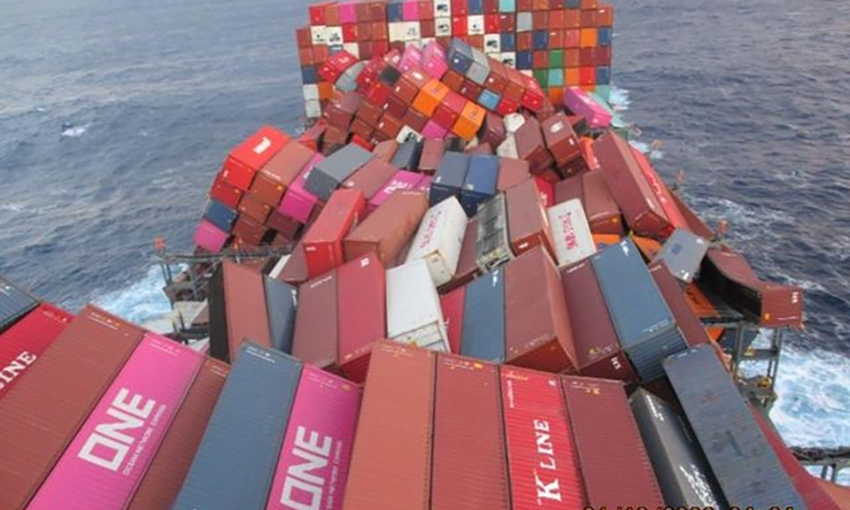CONTAINER losses at sea can have a huge impact on business and should be factored into logistics planning, according to Andrew Coldrey, vice-president of third-party logistics provider C.H. Robinson.
After the recent incident involving Maersk Eindhoven, in which it lost power in a storm and 260 containers went overboard, C.H. Robinson recommended greater contingency planning that takes into account the impact of accidents at sea.
The World Shipping Council has estimated more than 226 million containers were transported in 2019 with an average of 1382 containers lost.
However, maritime insurance executives approximating more than 3000 containers have been lost in the past few months alone.
C.H. Robinson vice-president Oceania Andrew Coldrey said ocean carriers are working hard to address the issue by more efficiently bracing containers and looking into technological developments, but importers and exporters should prepare for the delays that ensue.
“We are seeing more containers traversing the globe than ever before, resulting in high stacking, which when combined with bad weather cells, is a recipe for disaster. It is likely the sea freight industry and its customers will feel the impact of lost containers more than ever,” Mr Coldrey said.
“Accidents can happen at any time so steps should be taken to bolster supply chain risk management plans.”
Bolstering supply-chain resiliency should be mandatory for companies relying on sea freight, according to Mr Coldrey. Back-up networks detailing alternate modes of transport and sourcing should be developed and activated on short notice.
“A supply chain is only as strong as its weakest link,” he said.
“Having a provider with access to a global suite of services should enable businesses to quickly find a solution that minimises delays.”

